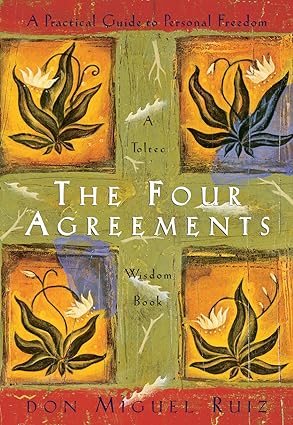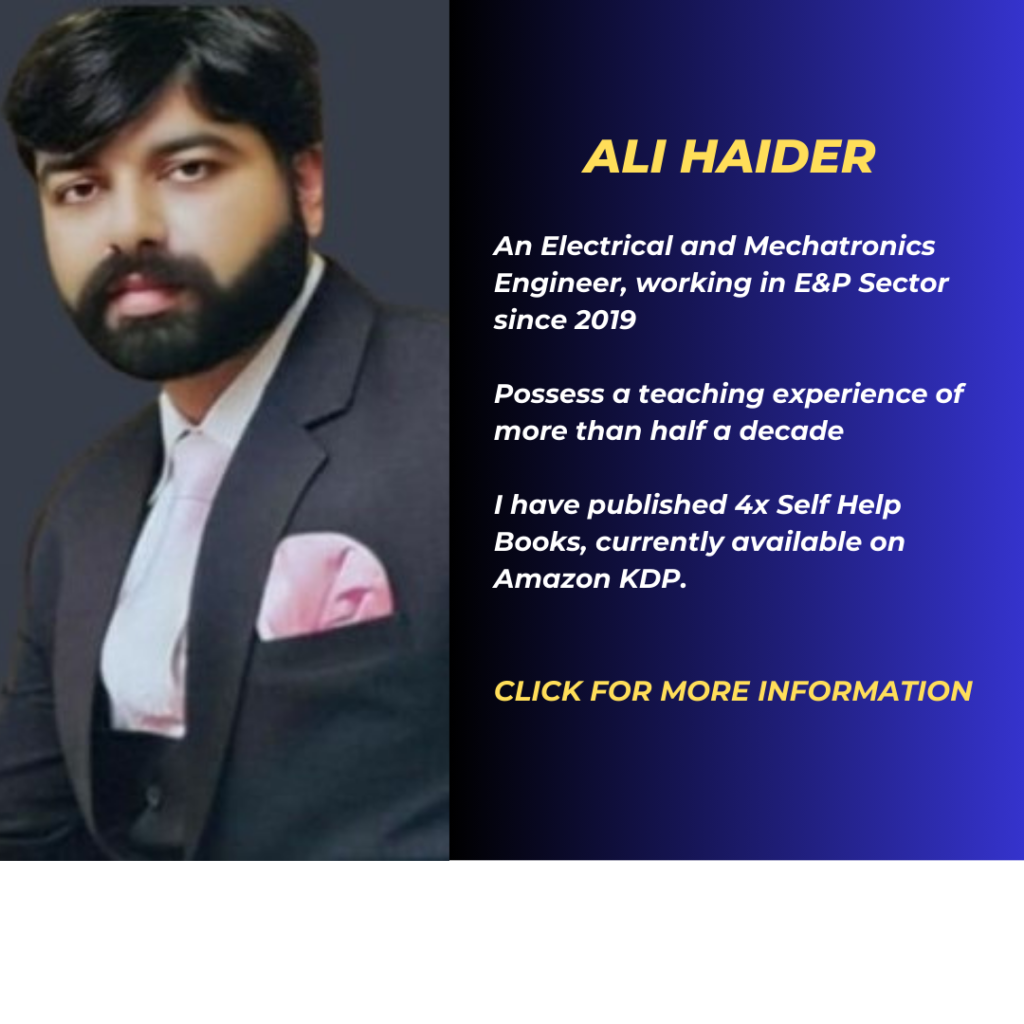
1 Line Summary
The Four Agreements is a self-help book that offers a code of conduct to free oneself from self-limiting beliefs and live a more peaceful and fulfilling life.
What Will You Learn
From “The Four Agreements”, you’ll learn how to:
- communicate more effectively and honestly,
- let go of anger, resentment, and other negative emotions,
- live in the present moment and appreciate the beauty of life,
- create more happiness and fulfillment in your life.
Best Quotations from the Book
- “The greatest freedom is to be yourself.”
- “The only way to win is not to play.” This means to refuse to participate in the drama and negativity of the world.
- “The only way out is through.” This means that the only way to overcome our problems is to face them head-on.
- “The only lasting beauty is the beauty of the heart
- “The only way to communicate is with love.” It means to avoid using words that are hurtful or judgmental.
- “The only way to be happy is to be free.” This means to be free from the expectations of others, from the past, and from fear.
- “The only way to be alive is to be present.” It means to appreciate the beauty of each moment and to live your life to the fullest.
Book Summary
Let’s dive into the most critical key takeaways from the book:
Be Impeccable with Your Word
The first agreement emphasizes the power of words and the importance of integrity in communication.
- Honest Leadership: As an executive, your word carries weight. Being impeccable with your word means leading with honesty and authenticity. This builds trust within your team and with stakeholders.
- Transparency and Accountability: Executives must communicate openly and transparently. This agreement encourages leaders to keep their commitments and be accountable for their actions and decisions.
- Positive Culture: Encourage a culture of impeccable communication within your organization. This fosters an environment where team members feel safe expressing their ideas and concerns.
Don’t Take Anything Personally
The second agreement highlights the need to detach from others’ opinions and actions.
- Emotional Resilience: Executives often face criticism and high-pressure situations. Not taking things personally builds emotional resilience, allowing you to remain focused on objectives rather than being swayed by emotional reactions.
- Effective Decision-Making: When you don’t take things personally, you make decisions based on facts and objectives, not emotional reactions. This leads to more effective and rational decision-making.
- Conflict Resolution: Encourage your team to adopt this agreement. It reduces conflicts by enabling team members to consider differing perspectives without feeling attacked.
Don’t Make Assumptions
The third agreement emphasizes the importance of clear and open communication.
- Clarify Expectations: Executives often rely on clear communication for effective decision-making and project execution. Encourage your team to seek clarification rather than making assumptions, ensuring everyone understands expectations.
- Strengthen Relationships: Misunderstandings due to assumptions can damage relationships. Promote open dialogue and encourage team members to ask questions when in doubt, fostering stronger, trust-based relationships.
- Prevent Errors: Assumptions can lead to costly mistakes. By following this agreement, you reduce the risk of errors caused by misunderstandings or misinterpretations.
Always Do Your Best
The fourth agreement focuses on consistently giving your best effort.
- Exemplify Excellence: Executives set the standard for excellence within their organizations. By always doing your best, you inspire your team to strive for greatness and maintain high standards.
- Lead by Example: Your commitment to doing your best sets the tone for your team. It motivates employees to give their best, promoting a culture of dedication and hard work.
- Balanced Work-Life: Executives often face intense workloads. This agreement encourages you to balance professional demands with self-care, ensuring you’re consistently at your best both personally and professionally.
Be Skeptical but Learn to Listen
This highlights the value of active listening and critical thinking.
- Effective Decision-Making: Skepticism encourages you to question assumptions and gather diverse perspectives. This is invaluable in making well-informed decisions that consider all angles.
- Inclusive Leadership: Listening to diverse viewpoints fosters inclusivity and promotes a culture of innovation within your organization.
- Conflict Resolution: Active listening reduces misunderstandings and conflicts. It allows you to address issues proactively and collaboratively.
Foster a Culture of Honesty
This principle extends the first agreement by emphasizing the importance of creating an environment where honesty is valued.
- Open Communication: Encourage your team to communicate honestly and transparently. Make it clear that constructive feedback and open dialogue are welcome.
- Trust and Accountability: A culture of honesty builds trust and accountability within your organization. Team members are more likely to take responsibility for their actions and decisions.
- Ethical Leadership: As an executive, your commitment to honesty sets an ethical standard for your organization. It promotes a culture where integrity is highly regarded.
Embrace Personal Responsibility
Take ownership of your actions and emotions.
- Accountable Leadership: Executives must take responsibility for their decisions and their impact on the organization. This fosters a culture of accountability that permeates throughout the company.
- Emotional Intelligence: Executives who embrace personal responsibility have higher emotional intelligence. This enables them to manage stress, conflicts, and challenges effectively.
- Leadership Development: Encourage personal responsibility among your team members. It not only promotes self-improvement but also develops future leaders who are accountable and capable of making wise decisions.
Are you ready to break free from the limiting beliefs that are holding you back? Are you ready to live a more peaceful and fulfilling life? Then read “The Four Agreements” by Don Miguel Ruiz today!
Click to read related summaries:
- “13 Things Mentally Strong People Don’t Do“,
- “Code of the Extraordinary Mind” and
- “Solving the Procrastination Puzzle”


Pingback: “Code of the Extraordinary Mind”: Book Summary -
Pingback: “Extreme Ownership” by Jocko Willink: Book Summary -
Pingback: "The Power of Positive Leadership": Book Summary
Pingback: “The Power of Intentional Leadership” by Ted Easton
Pingback: “Extreme Ownership” by Jocko Willink: Book Summary »
Pingback: “Code of the Extraordinary Mind”: Book Summary »